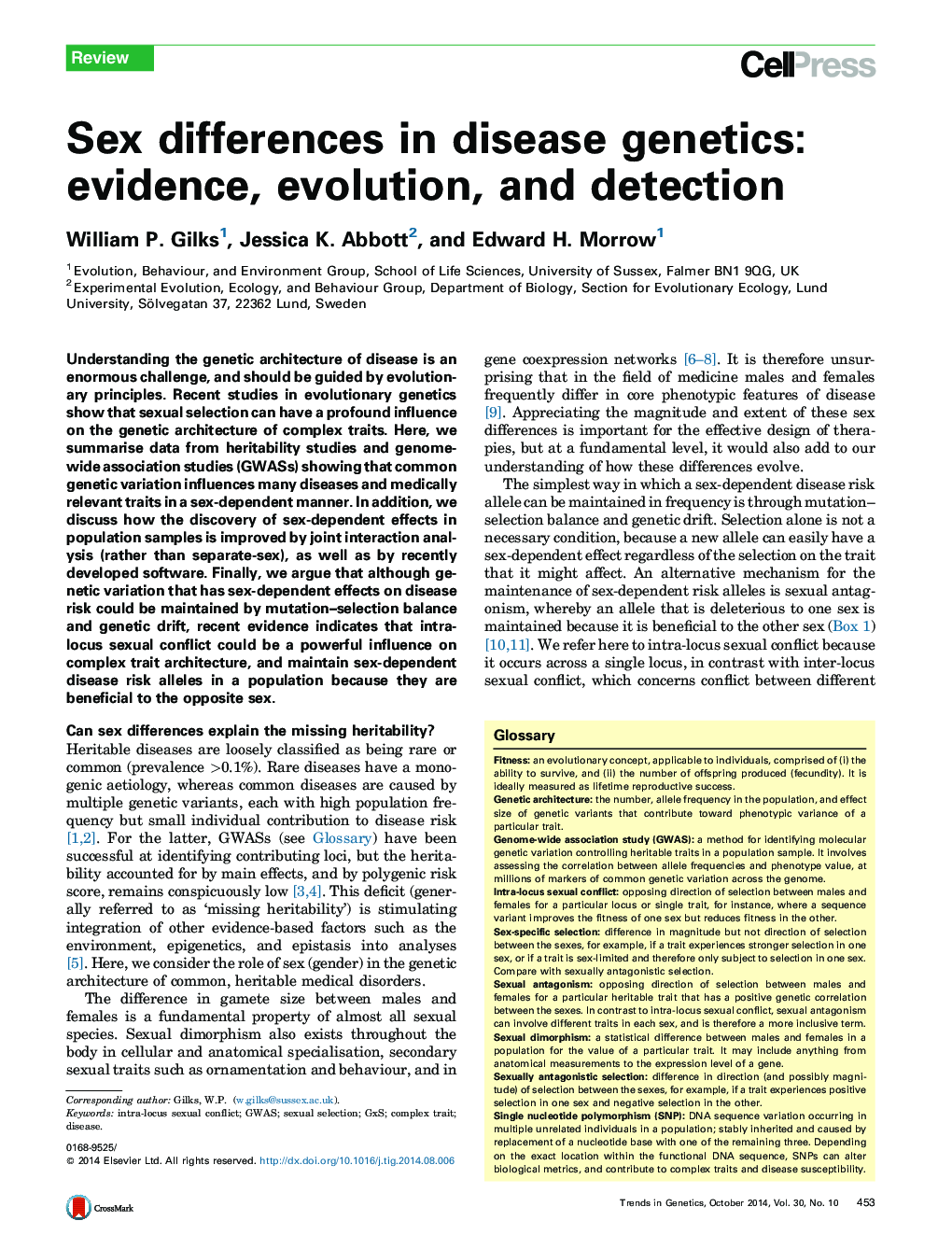| Article ID | Journal | Published Year | Pages | File Type |
|---|---|---|---|---|
| 2824753 | Trends in Genetics | 2014 | 11 Pages |
•In the last 5 years, genome-wide association studies (GWASs) have identified 33 sex-dependent loci in 26 medically-relevant traits.•Intra-locus sexual conflict could be maintaining harmful sex-dependent alleles in the population if they are beneficial to the opposite sex.•Many human diseases remain to be investigated for sex-dependent genetic effects – analytical methods have advanced greatly in recent years.•Sexually monomorphic phenotypes can have sex-dependent genetic architecture, if there is ongoing sexual conflict over the trait.
Understanding the genetic architecture of disease is an enormous challenge, and should be guided by evolutionary principles. Recent studies in evolutionary genetics show that sexual selection can have a profound influence on the genetic architecture of complex traits. Here, we summarise data from heritability studies and genome-wide association studies (GWASs) showing that common genetic variation influences many diseases and medically relevant traits in a sex-dependent manner. In addition, we discuss how the discovery of sex-dependent effects in population samples is improved by joint interaction analysis (rather than separate-sex), as well as by recently developed software. Finally, we argue that although genetic variation that has sex-dependent effects on disease risk could be maintained by mutation–selection balance and genetic drift, recent evidence indicates that intra-locus sexual conflict could be a powerful influence on complex trait architecture, and maintain sex-dependent disease risk alleles in a population because they are beneficial to the opposite sex.
